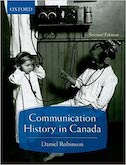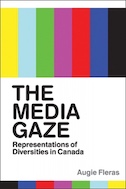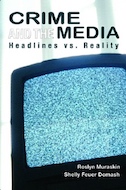

| Title | Author | Call# | Book Cover |
|---|---|---|---|
| Communication History in Canada | Robinson, Daniel | P 92 .C3C57 2009 |  |
| The Media Gaze : Representations of Diversities in Canada | Fleras, Augie | P 94.5 .M552C2385 2011 |  |
| Crime and the Media : Headlines Versus Reality | Muraskin, Roslyn. | P 96 .C742U66 2007 |  |
* Want to reserve one of these titles? Email library@alexandercollege.ca with your student # and the book title.
These e-Books are available in the online library collection. Click the title to access the resource.
Mildorf, Jarmila & Bronwen Thomas. 2017
Crystalizing Public Opinion : Original Classic Edition
Bernays, Edward & Mitch Horowitz. 2019
The Politics of Persuasion : Economic Policy and Media Bias in the Modern Era
Dimaggio, Anthony R. 2017
Mediatization of Communication
Lundby, Knut. 2014
Speaking Power to Truth : Digital Discourse and the Public Intellectual
Hawkins, Richard & Michael Keren. 2015
These handbooks provide easy to digest information about topics covered within Communications.
Encyclopedic Dictionary of Semiotics, Media, and Communications (2000) by Marcel Danesi
The Encyclopedic Dictionary of Semiotics, Media, and Communications is a dictionary designed to help students and genral readers understand the terminology and jargon in the fields of Semiotics, Media Studies, and Communication Studies.
The Oxford Handbook of Virtuality (2014) by Mark Grimshaw
The Oxford Handbook of Virtuality contains clost to 50 essays about virtuality and online communication.
Keywords for Media Studies (2017) by Laurie Ouellette and Jonathan Gray
Keywords for Media Studies introduces key terms, research traditions, debates, and their histories, and offers a sense of the new frontiers and questions emerging in the field of media studies.
When looking for resources related to COMM, try some of these keywords in your searching:
Sample search: “mass media” AND Canada
* Interested in learning more about using keywords for research? Check out our videos on how to create and search using keywords on our Research Skills page.
Open access resources are resources that are available to everyone for free online. Links here will lead to sites where you can download textbooks or access journals related to communications.
Understanding Media and Culture : An Introduction to Mass Communication.
Understanding Media and Culture is introductory mass communication text that covers major mass communication terms and concepts including “digital culture.”
Media, Society, Culture and You by Mark Poepsel
Media, Society, Culture and You is a survey of the basic topics of chemistry.
The Media and Communications Study Skills Student Guide by Doug Specht
The Media and Communications Study Skills Student Guide covers a range of general and generic skills that the author relates specifically towards media and communications studies..
DisinfoWatch defines itself as “a Canadian foreign disinformation monitoring and debunking platform” whose goal it is to increase public understanding and awareness about misinformation.
Media Digital History Library – Dedicated to digitizing historic books and magazines about film, broadcasting, and recorded sound for broad public access.
Pew Research Center – Journalism and Media – Data from various Pew Centers on topics such as media, the news, and public opinion.
Assignments written for Commerce courses use the APA (or American Psychiatric Association) rules for formatting. APA handbooks are available for your reference in the library or at the Writing and Learning Centre. Online WLC guides can be found here. You can also book an appointment with the Writing and Learning Centre for workshops and one-on-one citation help.
Need help? Connect with a Librarian through AskAway!
AskAway ChatAlexander College acknowledges that the land on which we usually gather is the traditional, ancestral and unceded territory of the Coast Salish peoples, including the territories of the xʷməθkwəy̓əm (Musqueam), Skwxwú7mesh (Squamish), and Səl̓ílwətaʔ/Selilwitulh (Tsleil-Waututh) Nations. We are grateful to have the opportunity to work in this territory.
Alexander College acknowledges that the land on which we usually gather is the traditional, ancestral and unceded territory of the Coast Salish peoples, including the territories of the xʷməθkwəy̓əm (Musqueam), Skwxwú7mesh (Squamish), and Səl̓ílwətaʔ/Selilwitulh (Tsleil-Waututh) Nations. We are grateful to have the opportunity to work in this territory.